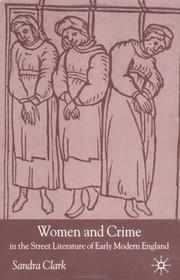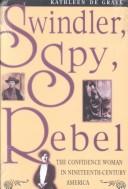| Listing 1 - 10 of 13 | << page >> |
Sort by
|
Book
Year: 2008 Publisher: Ann Arbor : University of Michigan Press,
Abstract | Keywords | Export | Availability | Bookmark
 Loading...
Loading...Choose an application
- Reference Manager
- EndNote
- RefWorks (Direct export to RefWorks)
Book
Year: 2008 Publisher: Ann Arbor : University of Michigan Press,
Abstract | Keywords | Export | Availability | Bookmark
 Loading...
Loading...Choose an application
- Reference Manager
- EndNote
- RefWorks (Direct export to RefWorks)
Book
Year: 2008 Publisher: Ann Arbor : University of Michigan Press,
Abstract | Keywords | Export | Availability | Bookmark
 Loading...
Loading...Choose an application
- Reference Manager
- EndNote
- RefWorks (Direct export to RefWorks)
Book
ISBN: 1003212026 1000510328 1003212026 Year: 2022 Publisher: New York, New York ; London : Routledge,
Abstract | Keywords | Export | Availability | Bookmark
 Loading...
Loading...Choose an application
- Reference Manager
- EndNote
- RefWorks (Direct export to RefWorks)
"This book studies early modern Spanish broadsheets, tabloid newspapers of the day which educated, entertained, and indoctrinated readers, much like today's "fake news. Parker Aronson incorporates a socio-historical approach in which she considers crime and deviance committed by women in Early Modern Spain and the correlation between crime and the growth of urban centers.""--
Chapbooks, Spanish. --- Female offenders in literature. --- Women in literature.
Book
ISBN: 9788491683223 8491683224 Year: 2019 Publisher: Barcelona: Universitat de Barcelona,
Abstract | Keywords | Export | Availability | Bookmark
 Loading...
Loading...Choose an application
- Reference Manager
- EndNote
- RefWorks (Direct export to RefWorks)
Book
ISBN: 1283142708 9786613142702 1443828289 9781443828284 9781443827102 144382710X 9781283142700 6613142700 Year: 2011 Publisher: Newcastle upon Tyne : Cambridge Scholars,
Abstract | Keywords | Export | Availability | Bookmark
 Loading...
Loading...Choose an application
- Reference Manager
- EndNote
- RefWorks (Direct export to RefWorks)
The form of art called fiction has always been the privileged framework providing the perfect alibi for facing, framing, and containing the Other's desire and the strange libido attached to violence: in other words, there is an ambivalent dimension inherent in the scenarios and fantasies we enjoy by proxy. Are not the fairy tales of our childhood full of images of death and violence, whose fascinating presence is paradoxically meant to make us feel all the more safely tucked up in bed? After ...

ISBN: 1403902127 Year: 2003 Publisher: Houndmills : Palgrave Macmillan,
Abstract | Keywords | Export | Availability | Bookmark
 Loading...
Loading...Choose an application
- Reference Manager
- EndNote
- RefWorks (Direct export to RefWorks)
Crime in literature. --- Crime --- Criminals in literature. --- English literature --- Female offenders in literature. --- Street literature --- Women and literature --- Women in literature. --- Women --- History --- History and criticism.

ISBN: 0826260314 9780826260314 0826210058 9780826210050 Year: 1995 Publisher: Columbia University of Missouri Press
Abstract | Keywords | Export | Availability | Bookmark
 Loading...
Loading...Choose an application
- Reference Manager
- EndNote
- RefWorks (Direct export to RefWorks)
One would not expect a police officer to describe a criminal as "remarkable," "well worth knowing," or "excellent." Yet some did when their quarry was a confidence woman. Blackmailer, swindler, or pickpocket: the confidence woman could take any form. Regardless of their different motives and tactics, confidence women have much in common, for they have long been misrepresented in American literature and culture. In Swindler, Spy, Rebel: The Confidence Woman in Nineteenth-Century America, Kathleen De Grave redresses the exaggerations and distortions by examining how the line between fact and fiction blurs. Drawing from a variety of sources, such as memoirs, diaries, detective reports, newspaper accounts, and sociological studies written during the period, De Grave first presents a historical context. By comparing the exploits of such women as "Chicago May" Churchill, "Big Bertha" Heyman, and Ellen Peck to those of fictional women who used the same strategies in noncriminal situations, De Grave broadens the definition of the confidence woman beyond criminality to include adventuresses, soldiers/spies, and "gold diggers." Next, she relates how the confidence woman appears in autobiographies and in fiction. She further expands her argument to include the narrative devices of nineteenth-century women writers who used a kind of confidence game as a way to lure their readers into the text.
American prose literature --- Swindlers and swindling --- Women and literature --- Alienation (Social psychology) in literature. --- Swindlers and swindling in literature. --- Female offenders in literature. --- Women spies in literature. --- Deception in literature. --- Alienation (Social psychology) in literature --- Swindlers and swindling in literature --- Female offenders in literature --- Women spies in literature --- Deception in literature --- American Literature --- English --- Languages & Literatures --- Literature --- Con artists --- Confidence men --- Confidence women --- Grifters --- Scam artists --- Scammers and scamming --- Scamming --- Crime --- Criminals --- Fraud --- Tricksters --- American literature --- History and criticism. --- History --- History and criticism
Book
ISBN: 9789004437432 9004437436 9004437444 9789004437449 Year: 2021 Publisher: Leiden, The Netherlands : Koninklijke Brill NV,
Abstract | Keywords | Export | Availability | Bookmark
 Loading...
Loading...Choose an application
- Reference Manager
- EndNote
- RefWorks (Direct export to RefWorks)
In this ground-breaking study, Sabine Binder analyses the complex ways in which female crime fictional victims, detectives and perpetrators in South African crime fiction resonate with widespread and persistent real crimes against women in post-apartheid South Africa. Drawing on a wide range of crime novels written over the last decade, Binder emphasises the genre’s feminist potential and critically maps its political work at the intersection of gender and race. Her study challenges the perception of crime fiction as a trivial genre and shows how, in South Africa at least, it provides a vibrant platform for social, cultural and ethical debates, exposing violence, misogyny and racism and shedding light on the problematics of law and justice for women faced with crime. Readership: All interested in crime fiction and its gender/racial political potential, its cultural relevance, its ethics and aesthetics, in South Africa and beyond.
Detective and mystery stories, South African (English) --- Women in literature --- Victims of crimes in literature --- Female offenders in literature --- Women detectives in literature --- Woman (Christian theology) in literature --- Women in drama --- Women in poetry --- Detective and mystery stories, English --- South African detective stories (English) --- South African mystery stories (English) --- South African fiction (English) --- History and criticism --- Female offenders in literature. --- Victims of crimes in literature. --- Women detectives in literature. --- Literary studies: fiction, novelists & prose writers --- History and criticism.
Book
ISBN: 1282445243 9786612445248 0472024469 0472050443 9780472024469 9780472900473 0472900471 9781282445246 6612445246 9780472070442 9780472050444 0472070444 Year: 2009 Publisher: University of Michigan Press
Abstract | Keywords | Export | Availability | Bookmark
 Loading...
Loading...Choose an application
- Reference Manager
- EndNote
- RefWorks (Direct export to RefWorks)
By introducing us to the New Woman Criminal, Framed offers a profoundly different view of the fin de siècle British crime narrative.
Detective and mystery stories, English --- English fiction --- Female offenders in literature --- Terrorism in literature --- Consumption (Economics) in literature --- Feminism and literature --- Literature and society --- Detective and mystery films --- Women in popular culture --- English Literature --- English --- Languages & Literatures --- History and criticism --- History --- Literature --- Literature and sociology --- Society and literature --- Sociology and literature --- English detective stories --- English mystery stories --- Social aspects --- Popular culture --- Women --- Crime films --- Police films --- Sociolinguistics --- English literature --- Public opinion --- Women authors --- Female offenders in literature. --- Terrorism in literature. --- Consumption (Economics) in literature. --- History and criticism. --- Literature and feminism
| Listing 1 - 10 of 13 | << page >> |
Sort by
|

 Search
Search Feedback
Feedback About UniCat
About UniCat  Help
Help News
News